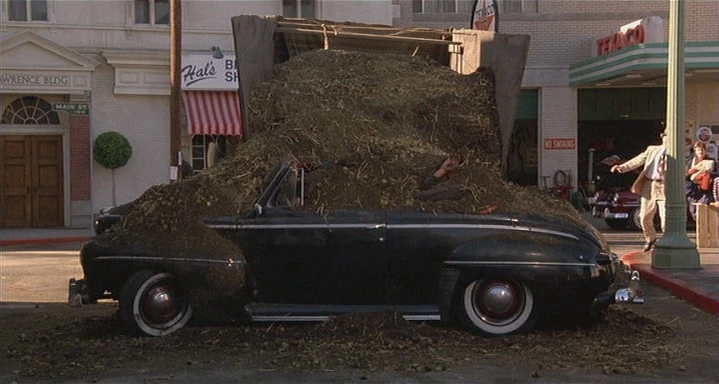I think a good part of people here knows the story behind the first casting of the protagonist of "Back to the Future". Michael J. Fox was not available and Eric Stoltz was chosen. But his type of acting was not suitable for what was a comedy, he was fired and MJF who had become available was called. The rest is history.
But recently I saw an interview with Lea Thompson (who plays Marty McFly's mother, Lorraine Baines).
Here she tells an interesting anecdote. After the first reading of the script with the actors they are all enthusiastic, the story is great everyone laughs etc etc. Then they ask Eric what he thinks and he says it is a tragedy. Because at the end of the film Marty remembers a past and a family that no longer exists. His new family are strangers who have lived a totally different life. And this new family has lost a son, because at home they have a stranger who coincidentally has the same name.
And I add, the movie tells us that all this is perfectly okay why? Because now Marty has a nicer house, he has a new car, he has so many things. Marty has lost his whole life but in exchange he has so many new material goods. And this is the essence of the American Dream, as long as you have things (goods, money, power, fame), everything else (love, family, beliefs) can be sacrificed.
(I think that even Crispin Glover - who played Marty's dad, was very critical about the movie message: money and financial success = happiness)
But recently I saw an interview with Lea Thompson (who plays Marty McFly's mother, Lorraine Baines).
Here she tells an interesting anecdote. After the first reading of the script with the actors they are all enthusiastic, the story is great everyone laughs etc etc. Then they ask Eric what he thinks and he says it is a tragedy. Because at the end of the film Marty remembers a past and a family that no longer exists. His new family are strangers who have lived a totally different life. And this new family has lost a son, because at home they have a stranger who coincidentally has the same name.
And I add, the movie tells us that all this is perfectly okay why? Because now Marty has a nicer house, he has a new car, he has so many things. Marty has lost his whole life but in exchange he has so many new material goods. And this is the essence of the American Dream, as long as you have things (goods, money, power, fame), everything else (love, family, beliefs) can be sacrificed.
(I think that even Crispin Glover - who played Marty's dad, was very critical about the movie message: money and financial success = happiness)



